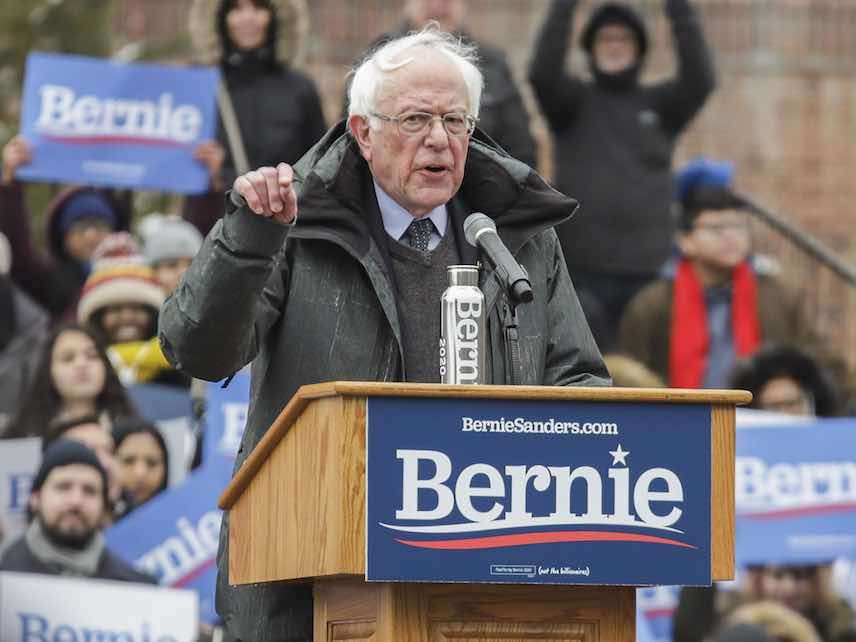Former Clinton Campaign Staffer Accuses Bernie Sanders of Failing to Mention Race, Gender in Speech That Explicitly Mentioned Race, Gender
There's intersectionality in theory, and then there's intersectionality as practiced by the most hysterically identity-obsessed activists.

One of the more straightforwardly dishonest aspects of the 2016 Democratic presidential primaries were certain Hillary Clinton supporters' efforts to portray rival Bernie Sanders as out-of-touch with black and female voters, even though his record on race and gender issues was at least as progressive as Clinton's.
Some Clinton partisans are still pushing this narrative. Enter Zerlina Maxwell, a former communications staffer for the 2016 Clinton campaign and current director of progressive programming at Sirius XM Radio. Maxwell, a black woman, appeared on MSNBC to react to Sanders' campaign kick-off speech at Brooklyn College on Saturday. She was not impressed.
"To be very serious about it, I clocked it," said Maxwell. "He did not mention race or gender until 23 minutes into the speech. And just for point of comparison, I looked at Elizabeth Warren's opening speech for example, she mentioned race and discrimination in the first paragraph. So that's a big difference and as somebody who is a black woman, knowing that black women are going to be a core constituency for any Democrat who hopes to win the nomination, I was looking to hear messaging specifically for my community, and I did not, at least until 23 minutes into the speech." Maxwell went on to accuse Sanders of failing the test of intersectionality.
But Sanders did not wait until minute 23 of his speech to address race and gender. He brought them up at the 5-minute mark: "The underlying principles of our government will not be greed, hatred, and lies. It will not be racism, sexism, xenophobia, homophobia, and religious bigotry."
This was one of his very first substantive remarks: The only reason it did not occur sooner is because the crowd kept interrupting him with applause, and Sanders took several minutes to thank the various speakers who introduced him—three of whom were black. (One was the Black Lives Matter activist Shaun King.)
In case there were any confusion, Sanders also declared that his vision for the country was based on economic, social, racial, and environmental justice. As The Intercept's Glenn Greenwald points out, "Sanders did not just mention race and gender once in his speech before the 23-minute mark Maxwell claimed, but did so repeatedly. It was not only the major theme of the speakers who introduced him but a primary theme of his own speech from the start."
Maxwell eventually conceded some ground, tweeting: "I've rewatched since yesterday and while I can acknowledge that I missed the passing line at 6 minutes I stand by my point since talking about criminal justice is not the same thing as talking about race and gender and if you don't get why Bernie won't win….again."
For the record, Sanders clearly talked about race and gender outside the context of criminal justice as well.
This incident highlights the disconnect between intersectionality in theory and intersectionality as practiced by the most hysterically identity-obsessed activists. If intersectionality merely means that progressives must consider how all sorts of injustices overlap, then Sanders is clearly an intersectional progressive. But if it requires its adherents to themselves be the victims of overlapping identity-based oppressions—to not just support the right causes but also possess a number of immutable characteristics—then a white male like Sanders will never be good enough.


Show Comments (90)